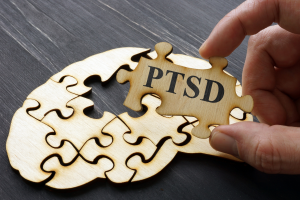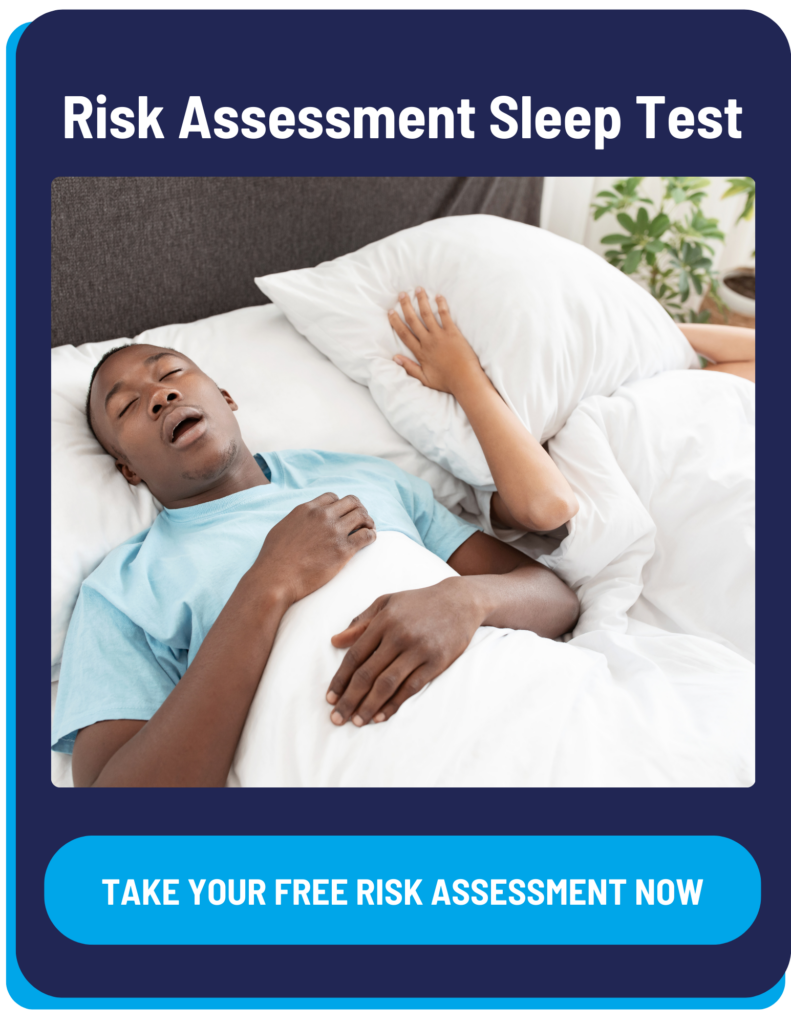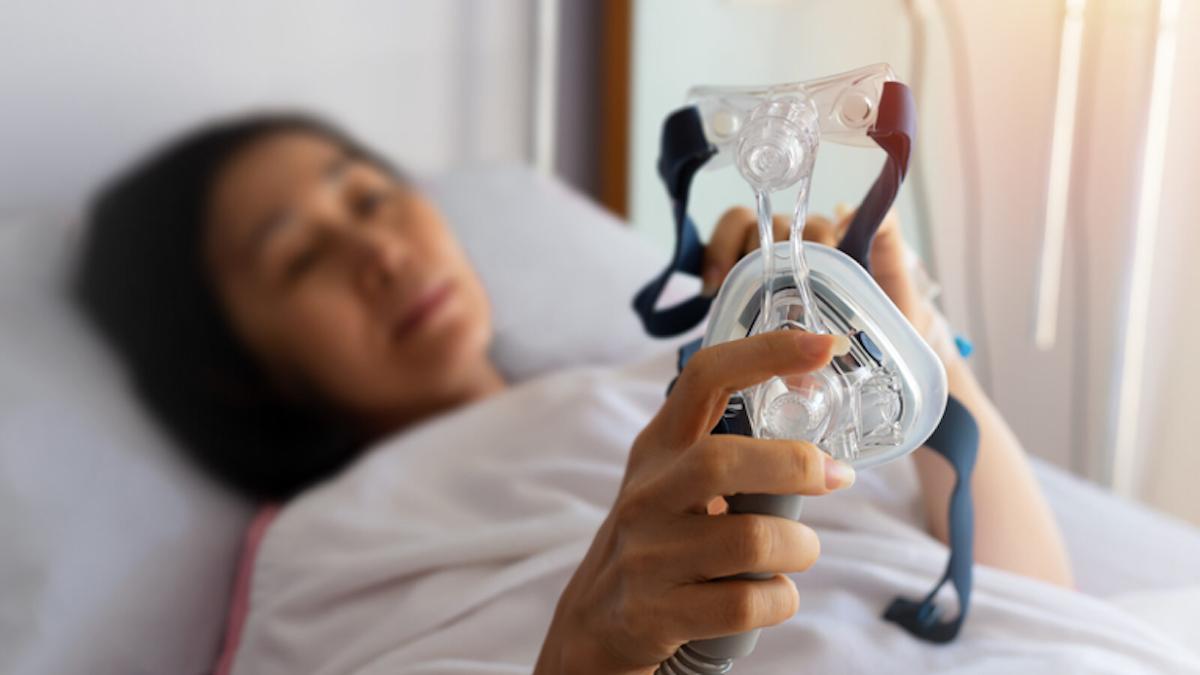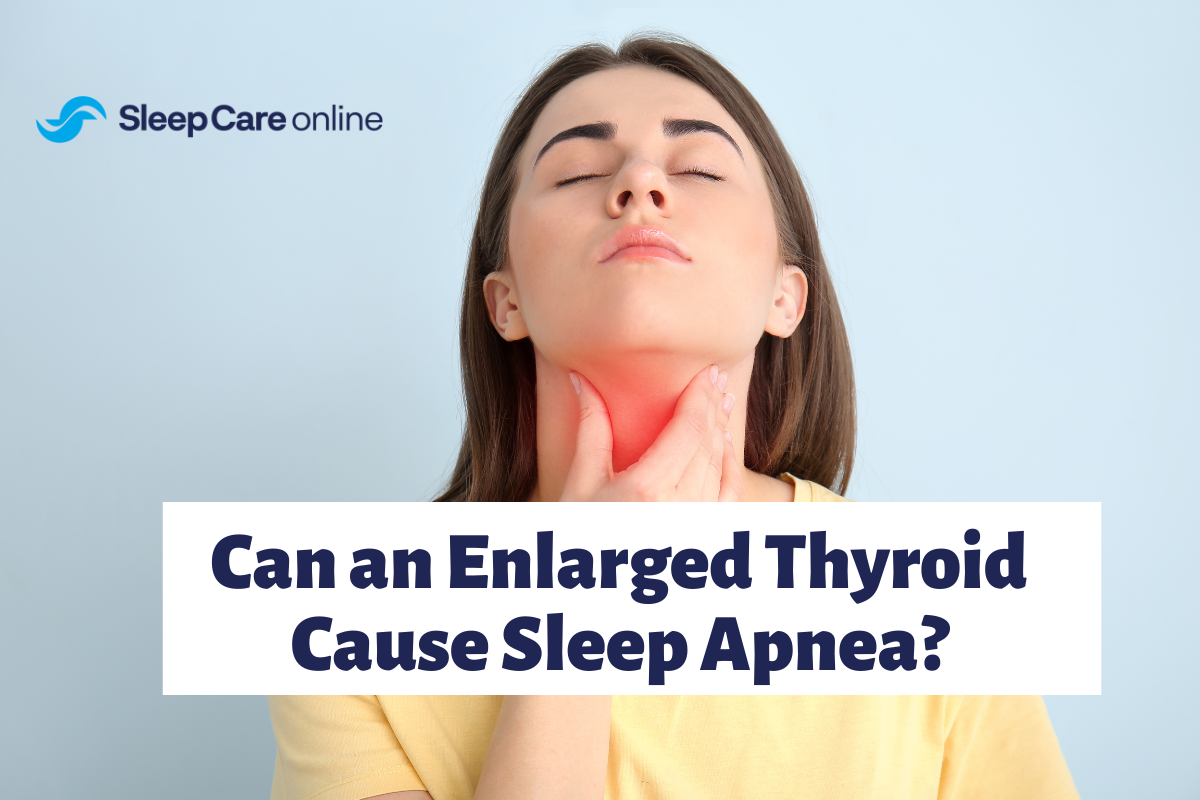PTSD and sleep apnea may seem like unrelated conditions, yet a new study finds that the risk of obstructive sleep apnea increased with the severity of PTSD symptoms.1 How and why PTSD and sleep apnea occur simultaneously is discussed in further detail.
What Is Obstructive Sleep Apnea?
Obstructive sleep apnea (OSA) is the most common form of sleep disorder. It occurs when the throat muscles relax during sleep causing the airway to close up momentarily, causing a brief loss of air called “apneas”. People with OSA wake up throughout the night frequently gasping for air, which eventually leads to chronic sleep deprivation. OSA commonly goes undiagnosed and may lead to other mental and physical health issues.
Symptoms of obstructive sleep apnea include:
- Loud snoring
- Gasping for breath while sleeping
- Morning headaches
- Drowsiness during the day
- Dry mouth in the morning
- Depression or anxiety
- Mood swings
- Forgetfulness and difficulty concentrating
What is PTSD?
PTSD or post-traumatic stress disorder is a condition that develops in some individuals after experiencing a traumatic event, which is why PTSD is most common in veterans returning from combat. Individuals with PTSD may experience a sense of danger and threat when there is none.
Individuals with the disorder may have reoccurring flashbacks of the traumatic event. As they cannot escape these powerful events in their minds, they may become agitated and emotionally and socially isolated. At its worst, PTSD may drive individuals to act out with destructive or self-destructive behavior.
The Causes and Symptoms of PTSD
PTSD is rooted in our fight-or-flight instinct as humans. If we experience frequent traumatic events in our lives, our nervous system becomes rewired to respond constantly to a sense of danger. PTSD most commonly affects military members who have experienced combat but has also affected children who experienced traumatic events and people who have been through a natural disaster.
The symptoms of PTSD include:
- Flashbacks of traumatic events that are the cause of the PTSD
- Avoiding places or people out of fear, especially circumstances that trigger flashbacks
- Anxiety, depression, or excessive guilt
- Excessive vigilance to the point that an individual cannot sleep or is easily startled by their surroundings.
PTSD Or OSA – Which Might Come First?
Someone with OSA already may experience traumatic events that can lead to PTSD. The obstructive sleep apnea could then worsen the PTSD condition. While it is unclear whether PTSD can lead to OSA, the erratic sleep patterns and sometimes poor lifestyle choices related to PTSD due to depression or anxiety can lead to the development of OSA. People with PTSD may experience weight gain, smoke more, or drink more alcohol which may amplify the symptoms of OSA.
How Does PTSD Affect Sleep?
Individuals with PTSD may experience reoccurring nightmares and long bouts of insomnia due to anxiety or hyperarousal that prevents normal sleep.
Can PTSD Cause Sleep Apnea?
While PTSD does not cause sleep apnea directly, PTSD patients are more likely to have sleep apnea risk factors such as high blood pressure, smoking, alcohol use, and obesity. These risk factors tend to cause sleep apnea to become an additional sleep-related problem impacting their PTSD.
REM Sleep and Fear
REM sleep is the deepest level of sleep and is key to good health. Those who have sleep disorders may never reach REM sleep or slip in and out of REM sleep, affecting health overall. Good sleep health helps manage brain chemicals that manage fear. Essentially, we are less susceptible to trauma when we get enough sleep. Sleep loss due to emotional conditions such as PTSD can cause the brain to react erratically to fear. The flight or fight response becomes hyperresponsive and makes waking life more difficult.
As people with PTSD lose sleep because of their condition, fear intensifies and makes the symptoms of PTSD worse. According to one study, 69% of Vietnam veterans with PTSD also had sleep-disordered breathing.
What is the Relation Between Sleep Apnea and PTSD?
Sleep apnea and PTSD are related only by these risk factors, which means changes in lifestyle and a focus on personal health can help minimize sleep apnea symptoms in PTSD patients.
- Smokers are three times more likely to have obstructive sleep apnea. Smoking inflames the upper airway which contributes to sleep apnea symptoms.
- Alcohol use or abuse causes the muscles in the airway to relax during sleep which causes apneas at night.
- Weight gain causes increases in fatty deposits in the neck area which can cause the airway to close during sleep.
When Is It Time to See a Doctor for PTSD and Sleep Apnea Symptoms?
Both PTSD and sleep apnea are serious conditions that can affect physical and mental health. When fear is overwhelming and memories of past traumatic events are impacting everyday life, it is important to seek help from a doctor to receive a diagnosis of PTSD. At the same time, if you are experiencing chronic sleep loss and any of the symptoms of sleep apnea, addressing that condition as well can lead to a proper diagnosis of the sleep disorder and proper treatment.
Often people with PTSD may feel embarrassed or guilty about their emotional experience and may not reveal sleep problems or PTSD episodes to a doctor. It is important, to be honest about symptoms with yourself and your health provider.
Sleep Apnea Treatments May Improve PTSD Symptoms
A diagnosis of sleep apnea means that you can begin treatment. With effective treatment comes the possibility that better sleep can improve PTSD symptoms. Using CPAP therapy, patients with sleep apnea can minimize the frequency of apnea episodes at night when the airway closes. Consistent therapy will eventually lead to more peaceful and healthy sleep.
CPAP machines are an essential part of CPAP therapy. Patients may need time to adjust to breathing pressurized air as they sleep and wearing a mask. But the long-term health effects can improve not only PTSD but other health conditions. People who are diagnosed can also make lifestyle changes that can improve sleep and reduce sleep apnea symptoms.
Can a Home Sleep Study Detect Sleep Apnea Due to PTSD?
PTSD patients can take an easy and convenient home sleep test to diagnose sleep apnea. Here is how it works.
- With the Complete Care Package, schedule a 10-minute telehealth visit with a healthcare provider to discuss your symptoms, upcoming sleep study, test results, and treatment options.
- A multi-night, disposable home sleep apnea test is mailed to your home to be completed at your convenience.
- A physician analyzes the sleep data and provides a prescription if needed.
- Schedule an optional follow-up appointment (additional fee applies).
- We connect you to sleep experts who can offer customized sleep therapy options, assistance in equipment purchase, and initial set-up.
Home sleep apnea tests and telehealth services are now available nationwide. Call 866-465-4478 or email contact@sleepcareonline.com for more information.
Reference:
- American Academy of Sleep Medicine. The study finds high risk of sleep apnea in young veterans with PTSD. Accessed October 2020.





